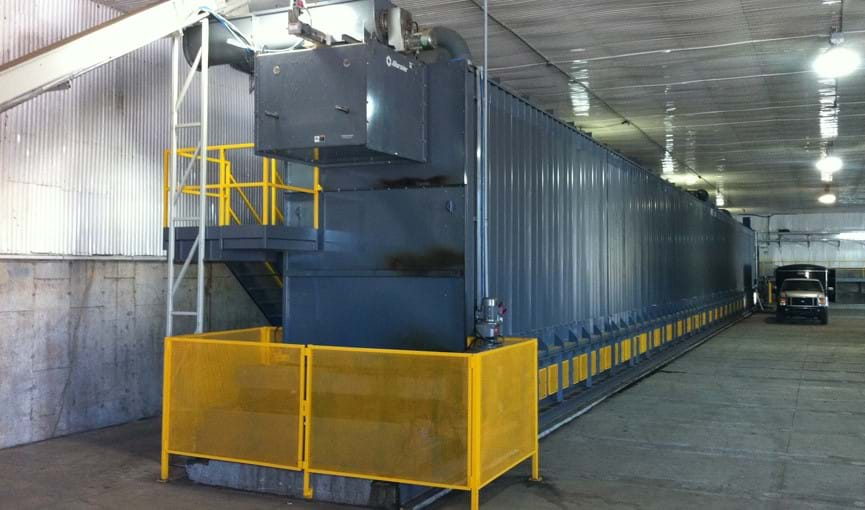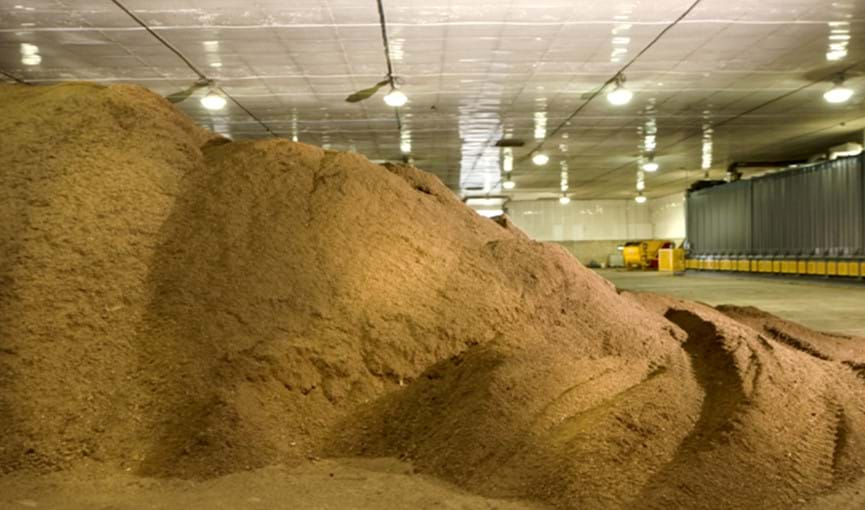Composting on a large scale
February 27th, 2020
Municipalities are being increasingly being forced to optimize management of residual materials in the wake of the Québec Residual Materials Management Policy, which is aimed at banning the burial of organic matter at disposal sites. Large cities such as Montréal, Gatineau and Québec City have opted to biomethanate their food residues and municipal biosolids, however composting remains an attractive alternative, particularly for less populated agglomerations.
by Denis Potvin, agr., Technology Transfer Agent – Project Manager
Quality agronomic and environmental compost can be an excellent source of fertilizer and organic matter.
A first major challenge is to recover as much organic residue as possible through efficient collection methods. Several methods and types of equipment are available. These include three-way collection as well as robotic, mechanical and optical sorting processes. A second challenge is to produce composts for targeted applications such as agriculture, ornamental horticulture and use in redevelopment of degraded places and sites.
Technology that is now accessible
At one time, pile and windrow composting were the only economically feasible options. However these days environmental constraints, the need to maintain a decent neighborhood and financial incentives make closed enclosure processes an efficient alternative for commercial-scale composting projects. Using bio-reactors for the active phase of composting offers significant benefits in controlled conditions. These include decreased processing time, odor control, the mitigation of liquid waste and greenhouse gases, reduction of required surfaces, and so on.
Multiple systems available
Today, several manufacturers offer closed composting enclosures some of which can also be used for bio-drying of organic residues. The IRDA for its part has developed SHOCTM , a patented industrial bio-drying or composting process that generates a partially dehydrated, sanitized and deodorized end product.
The SHOCTM process is already available for the treatment of municipal residual materials through Viridis, a licenced provider whose clients divert tons of organic waste from landfills.
The SHOCTM Technology is also useful for dehydrating damp organic residue such as manure or organic residues from the food, forestry, agriculture, marine and other industries into solids.
Available licenses
IRDA is constantly looking for companies that want to use or leverage its technologies. Licenses to manufacture, distribute or market SHOCTM are available for several types of uses. Licenses are the subject of agreements between the parties, related to the field of application, territories to be covered, duration and terms relating to royalties on sales.
Click here to download the article.
Click here for more information about SHOC.



